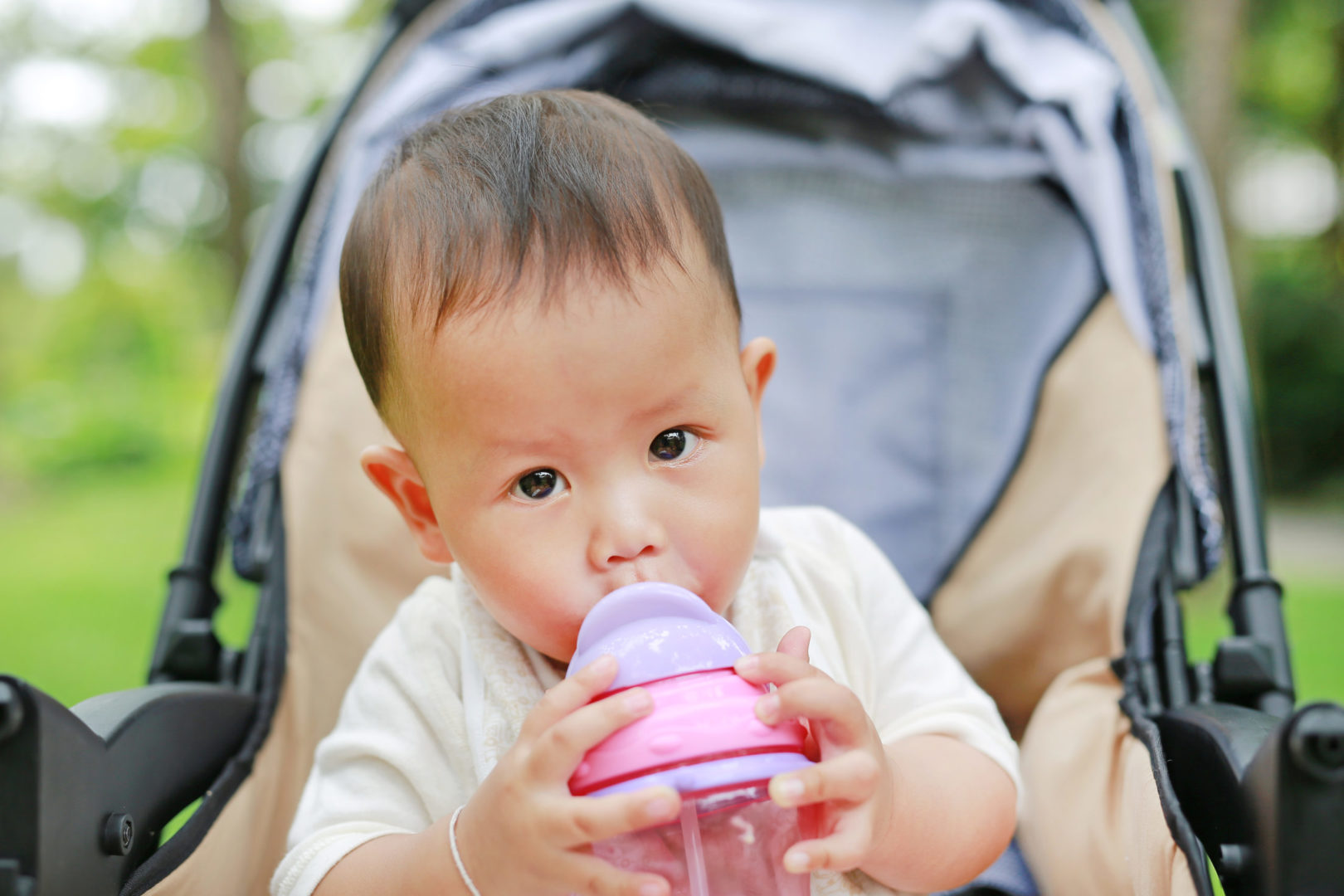Transitioning From Bottles to Sippy Cups

This may not be a sleep-related topic, but it’s one I get asked all the time. Parents get into such a good groove with bottles and they just can’t imagine their babies transitioning away from this type of nutrition. Let me start by saying that there is no one way to do this. Parents should always discuss the transition from bottles to sippy cups with their pediatrician.
How to Transition from Bottles to Sippy Cups
Read my experience with my two children and how the things I implemented helped. You can have a successful transition, too.
Consider your child’s age
Both of my children were formula-fed until exactly one year of age. This is the age most recommended by pediatricians to transition from bottles to sippy cups.
They were drinking about 5-6 ounces four times a day, in addition to three solid meals- it was a lot! At a year old, I decided to eliminate the two middle-of-the-day formula bottles and replace them with sippy cups of whole milk. Neither one of my kids wanted anything to do with it.
I think this had nothing to do with it being whole milk, but rather they really missed their bottles. I’m one of those cold-turkey kind of parents. Therefore, I stuck to my guns and didn’t give the bottles back. I was optimistic that within a few days, they would adjust and accept the milk in their brand-new sippy cups.
Challenges
Well, the transition from bottles to sippy cups didn’t exactly happen the way I imagined it would.
Both of my children completely rejected the milk in sippy cups and would only drink water. In the short term, they were a little cranky and irritable. However, within a week they had upped their food consumption and didn’t seem to miss those bottles anymore.
Once they adjusted, I took the same approach with their morning bottle. Then a few weeks later, I did the same with their bedtime bottle. By 13-14 months, both of my kids were completely weaned from their bottles, and also milk as a result. This was never my intention. However, I have to say there was a silver lining to the way this played out.
Food with toddlers
My children are fabulous eaters. I truly believe that their appetite for a wide variety of foods is due to the fact that their bellies are not being filled with sweet, creamy delicious milk.
It would have been fine for them to drink milk in moderation, as I understand the health benefits. Ultimately my children both had different plans. Therefore, we made up skipping milk with yogurt, cheese, and calcium-rich vegetables like broccoli and edamame.
The Time to Transition from Bottles to Sippy Cups is Important
I think the most important thing to remember with the transition from bottles to sippy cups is that you make the transition at a pace that feels right for you and your child. There is no line in the sand that requires parents to ditch the bottles at exactly one year.
Parents know their children better than anyone else. They should always trust their own instincts when preparing their children to make a big change. Parents should also remember that while these changes may feel big to their little children, usually all goes relatively smoothly. Then, it’s on to the next big thing!
Take a deep breath and remember that these milestones feel very big while we are in the thick of it. However, they are not quite as monumental in hindsight. Before you know it, you’ll be dropping that little babe off at kindergarten!


